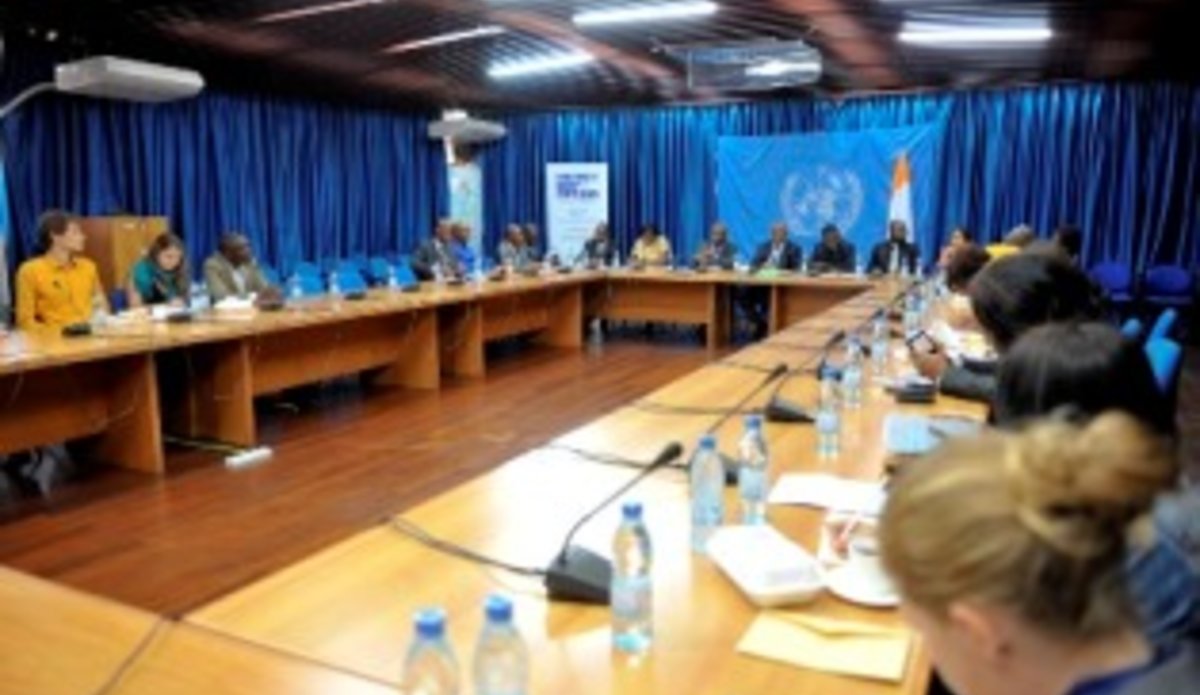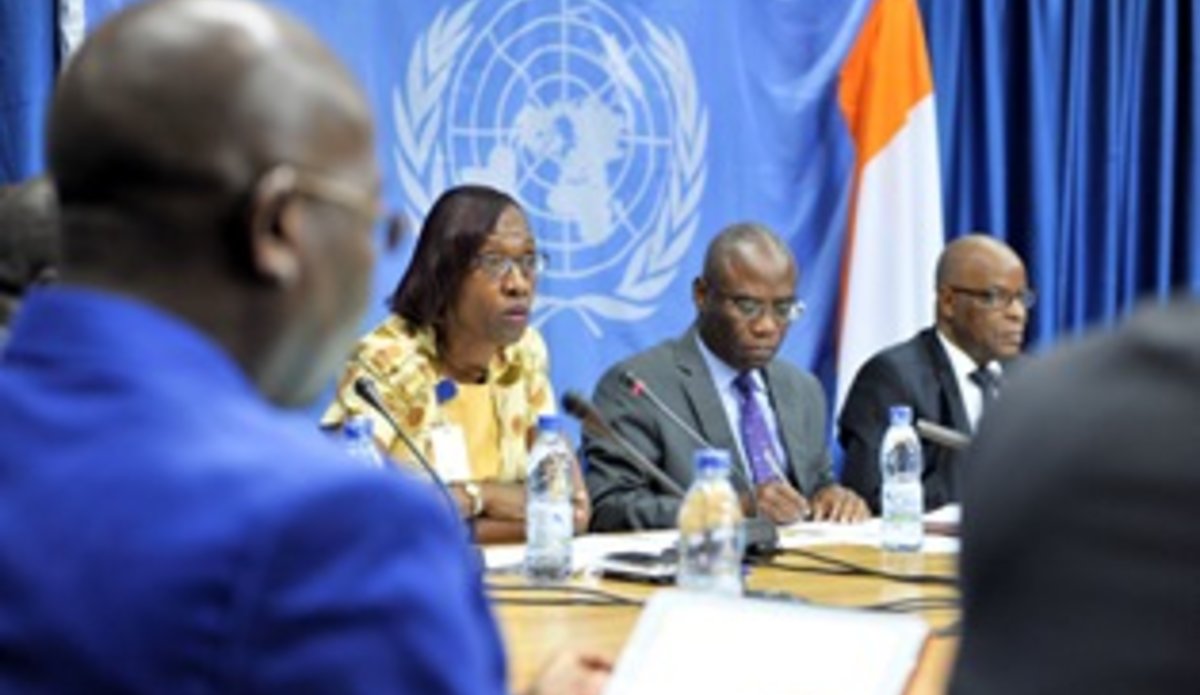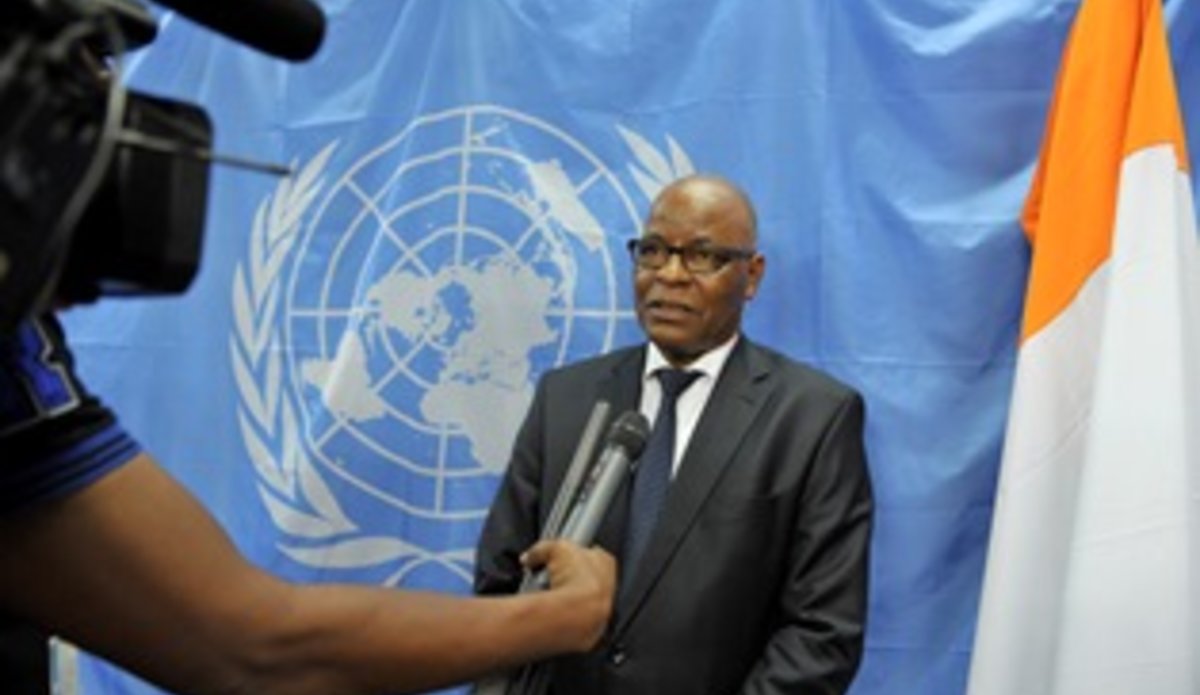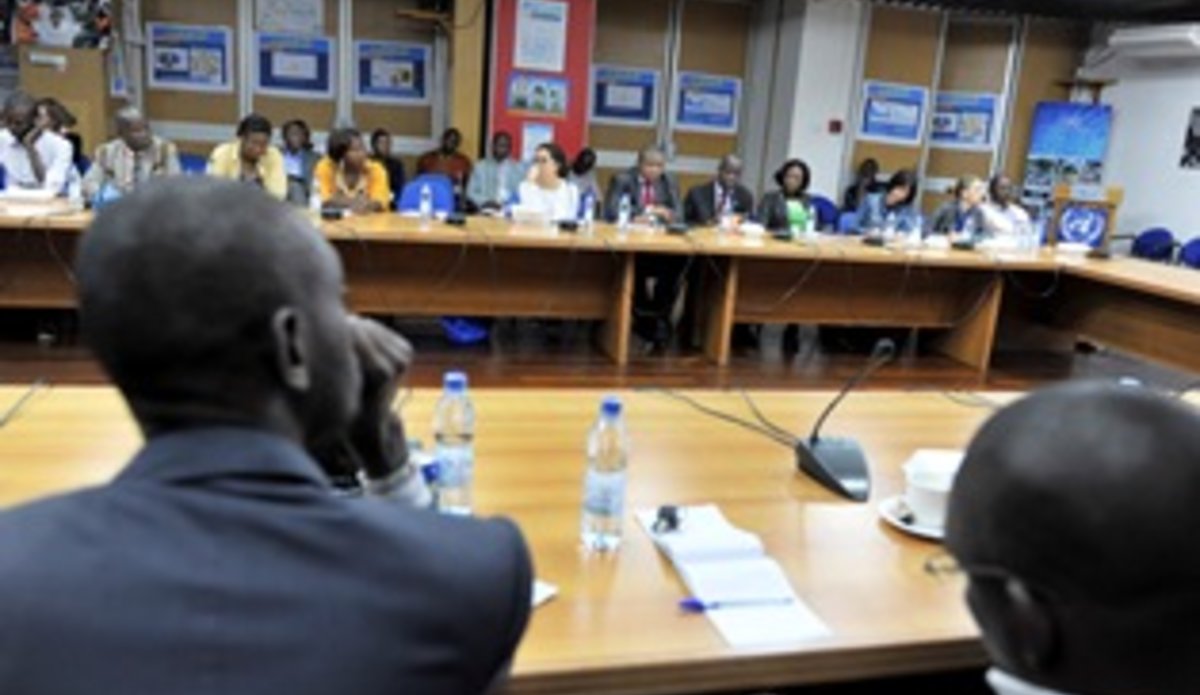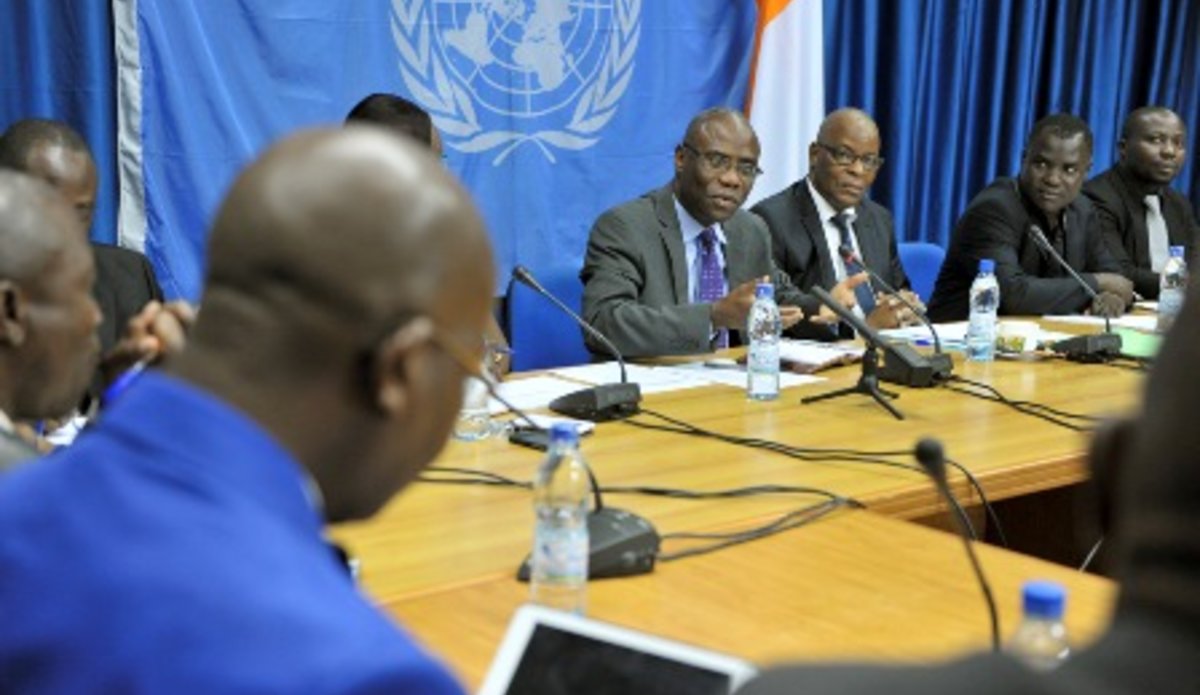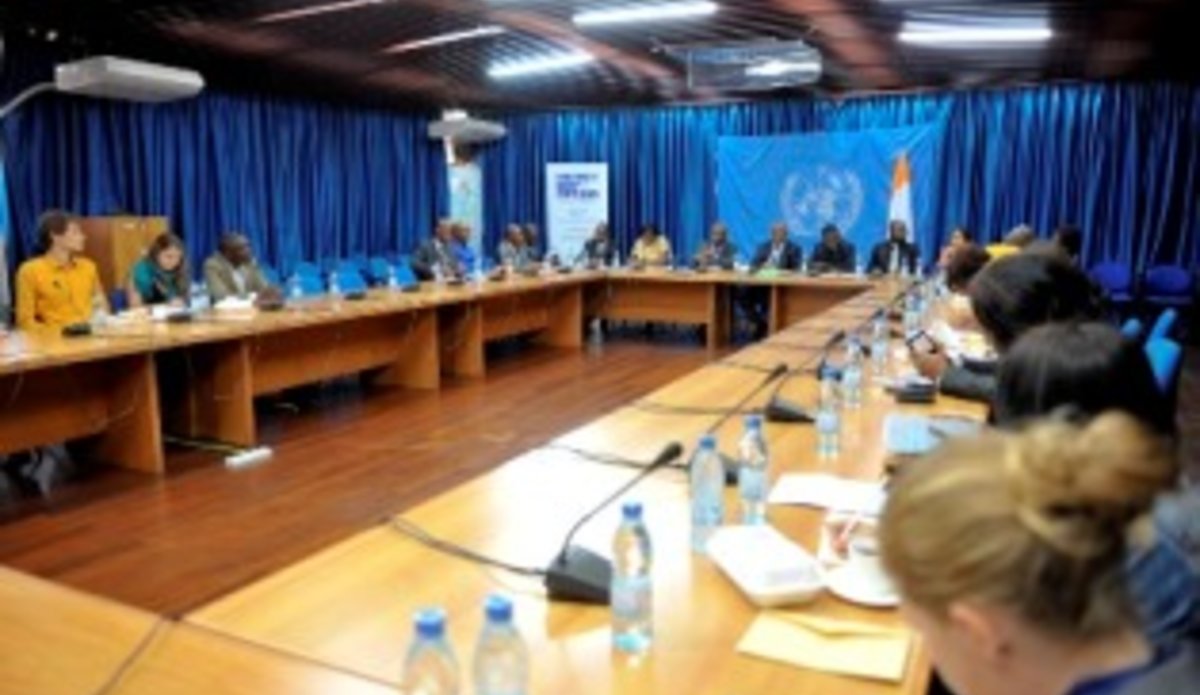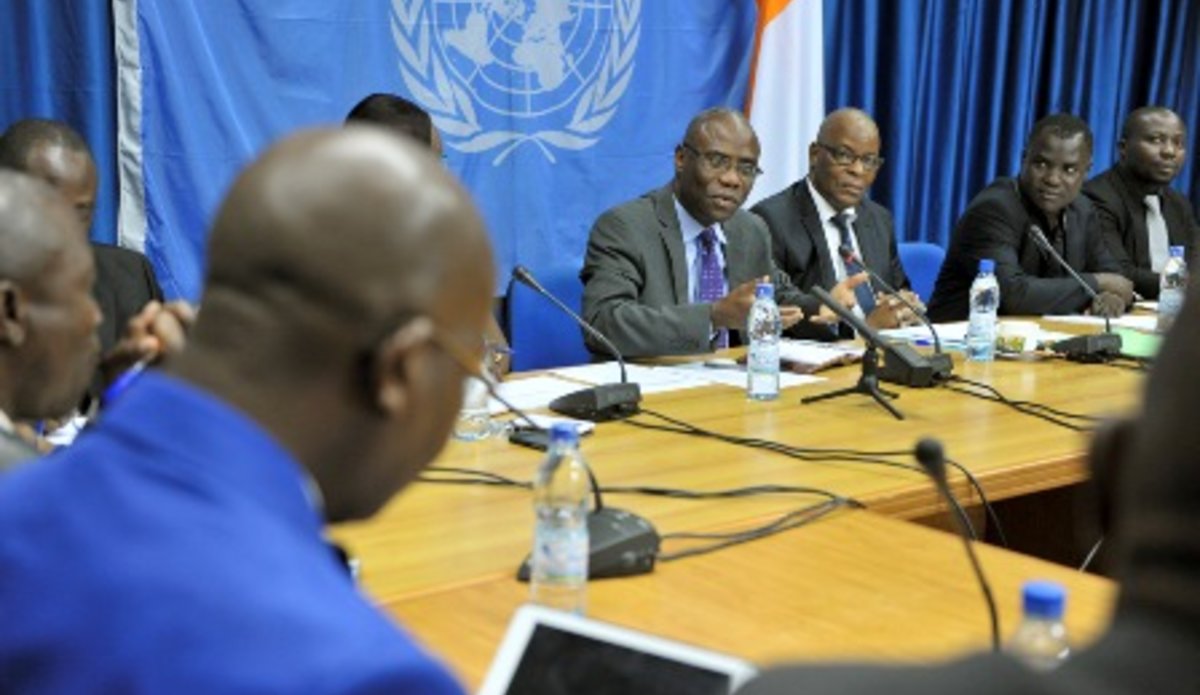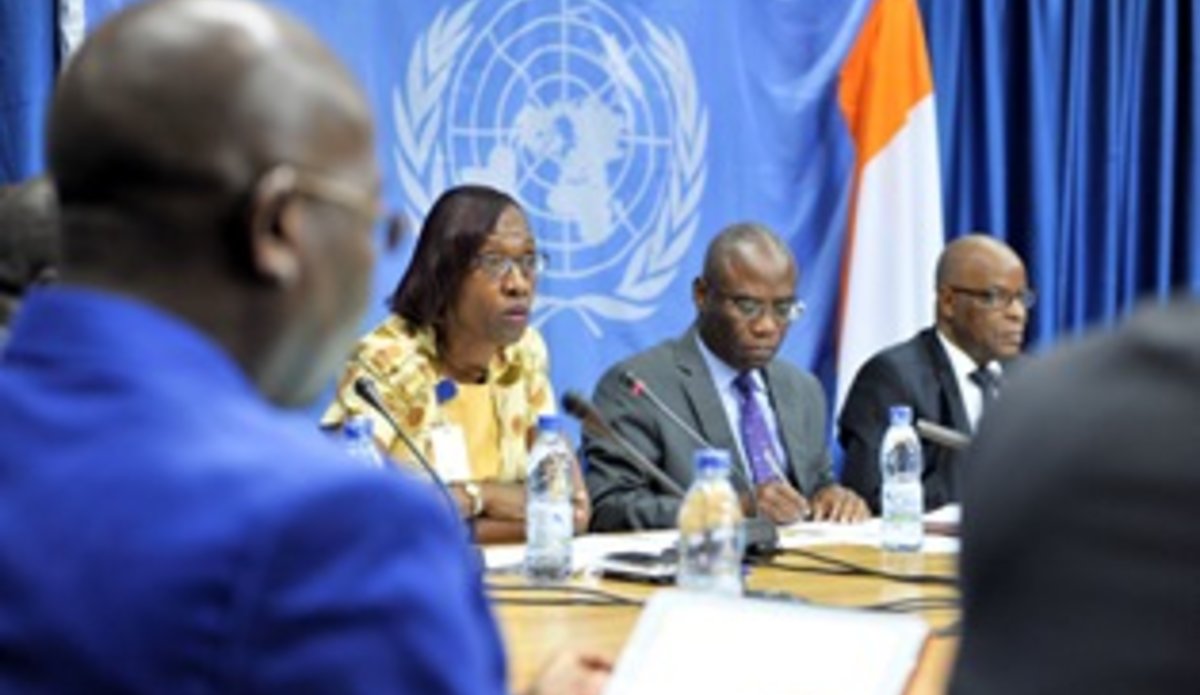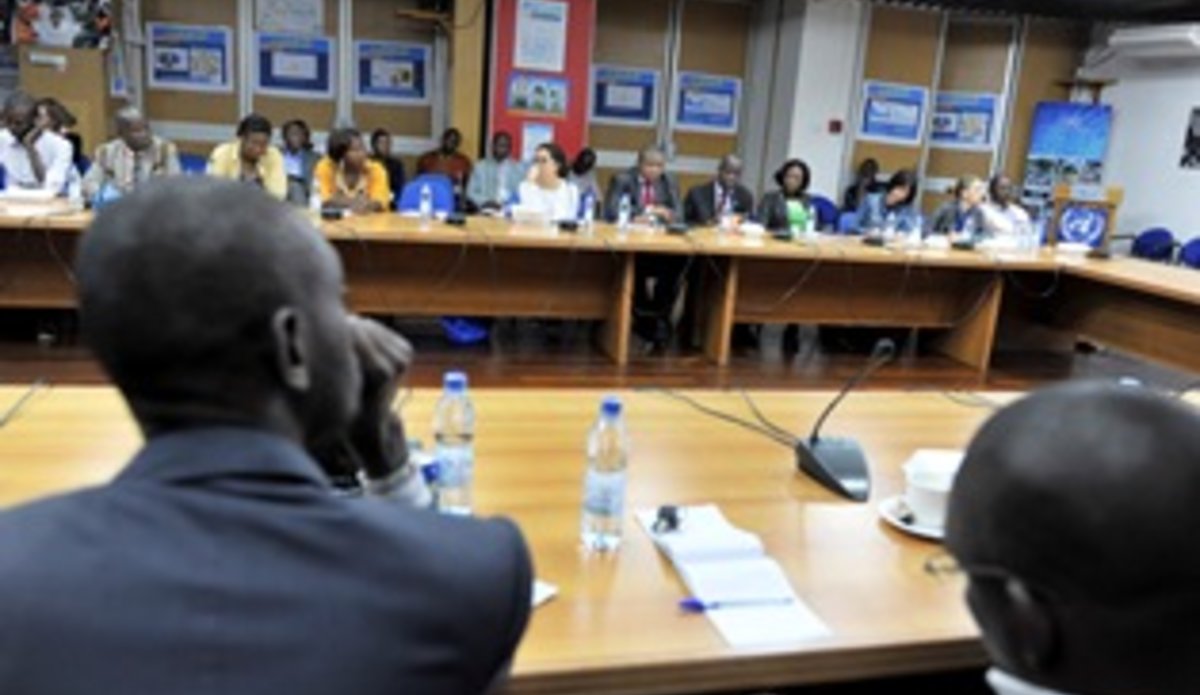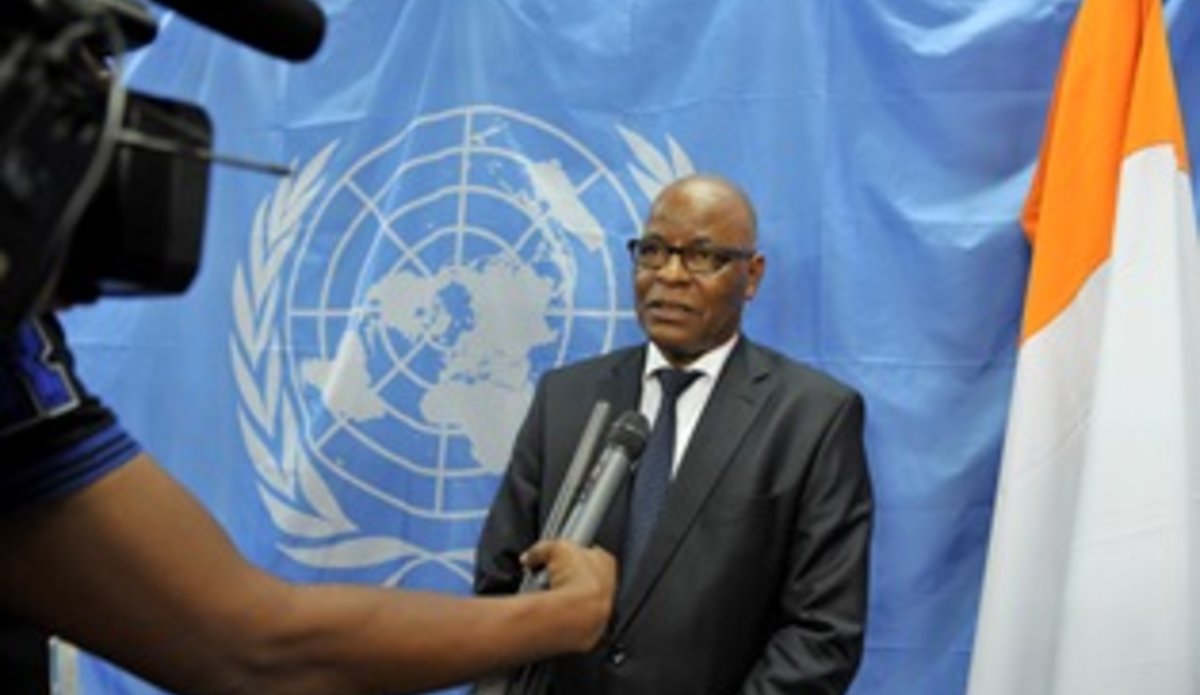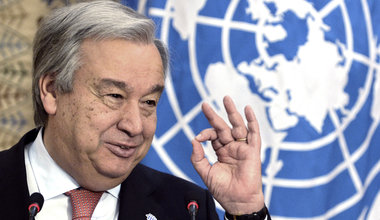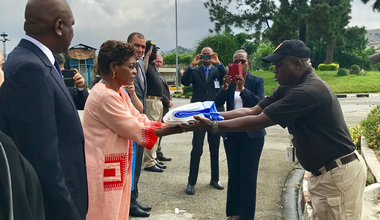UNOCI and partners hold luncheon- discussion on management of rumours in pre-electoral period

The Security Sector Reform division of the UN Operation in Cote d'Ivoire (UNOCI) on Tuesday 17 June organized the 17th edition of its monthly luncheon-discussion in collaboration with the Centre for Research and Action for Peace (CERAP) and the Friedrich Ebert Foundation.
The luncheon-discussion presided over by the Deputy Special Representative of UN Secretary-general in Cote d'Ivoire, Arnauld Akodjenou focused on the management of rumours in a pre-electoral context. Introducing the occasion, Mr. Akodjenou welcomed the initiative and especially the theme under discussion, recalling that issues concerning rumours should be taken seriously and carefully, Rumours, he said, could threaten the reconstruction process in Cote d'Ivoire.
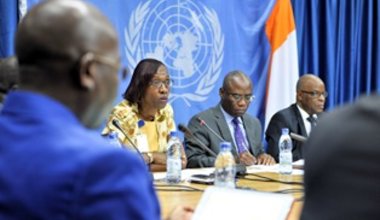
UNOCI's Chief of Media Monitoring, Eliane Herve-Akendengue recalled that UNOCI has for the past two years been organizing workshops on the subject for journalists, community radio announcers and members of civil society. She said the workshops were interactive and participants themselves are encouraged to discuss their personal experiences on rumours and to propose solutions for solving and anticipating potential tension. The aim, she said, is for the media practitioners to take ownership of the management of rumours.
The Media Monitoring Chief said the treatment of this subject was aimed at preparing the ground for a peaceful electoral environment before, during and after elections and ensuring that rumours do not have an upper hand over the truth. Ms. Akendengue called on participants to restrict themselves to facts and to play their role in the reconstruction of Cote d'Ivoire by abstaining from rumours which can hinder all the processes including the security reform process. She concluded by reiterating the availability of the Media Monitoring Unit of UNOCI to support partners throughout 2014-2015 for the promotion of a favourable environment to consolidate peace.
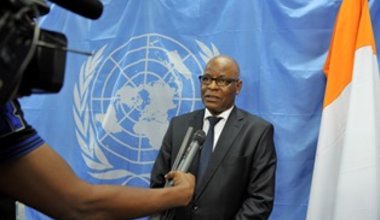
For his part, the President of the National Press Council (CNP), Raphael Lakpe spoke of the manner in which he manages rumours and how he intends to sensitise journalists during the pre-electoral period. He explained that since 2011, two camps emerged at the level of the written press and a bipolarisation exists in this sector.
After analyzing the origin of rumour, its characteristics and its impact on the behavior of the population, Mr. Lakpe stressed the need to differentiate between journalistic information and rumour. Journalistic information, he said, « is gathered and treated by journalists before being put ta the disposal of the wider public while the author and origin of rumour is unknown but is capable of spreading and impacting on the public ».
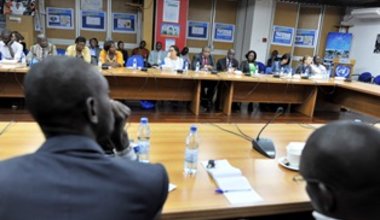
Mr. Lakpe informed participants that the CNP, the High Authority for Audio-Visual Communication and the Observatory for Press Freedom ,Ethics and Professional Standards were created and have mechanisms for sanctioning cases of "incitation to violence" as a result of rumour. « Rumour thrives where there is no information, » he said. « We demand that journalists be professional and respect the rules and regulations of journalism, and that they refrain from treating information from a personal point of view and desire but as a function of what is factual and what the facts say ».
He promised that workshops will be organised for editors to draw their attention to the precarious situation and caution them to avoid making things worse.
A representative of the Dialogue, Truth and Reconciliation Commission, Franck Sran Kouassi recalled the mission of the Commission which is to identify and make a census of victims of the 2010-2011 post electoral crisis, noting that rumour was at the root of problems faced by some of the victims.

The representative of the national Authority for Disarmament, Demobilsation and Reintegration (ADDR) shared his experiences on rumour saying ex-combatants used sms messages to spread it. « We try to manage the situation so it does not perturb the disarmament and reintegration process, » Aida Bouremaould said.
In his closing remarks, the Deputy Special Representative of UN Secretary-general in Cote d'Ivoire, Arnauld Akodjenou said he was satisfied with the quality of discussions because for a country that is just emerging from a crisis like Cote d'Ivoire, rumour can be a hindrance to the national reconciliation process. He called on members of the press and civil society to work toward the proper management of rumour and expressed the wish that the press would also examine the phenomenon of "misleading" headlines popularly referred to as because it can be a source of rumour in its own right.
Mr. Akodjenou said he was happy to note that a law on the freedom of information has been voted and hoped it would soon be put into practice.
 UN
UN United Nations Peacekeeping
United Nations Peacekeeping
